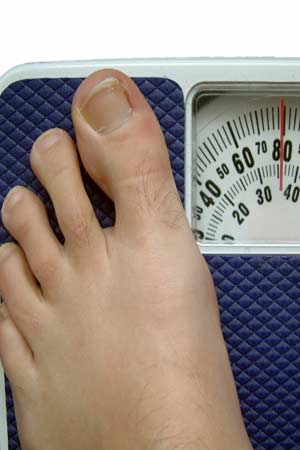How to Lose Weight Without Feeling Hungry
Losing weight is commonly associated with calorie-intake reduction, which equates to not eating very much and being constantly hungry. This is both a reason why most people give it up, and a delusion for those who think starvation is the solution for weight loss - respectively they usually fail. To succeed in your weight-loss efforts you have to mindset yourself that hunger is not the key to losing weight. Here are some quick tips to get yourself convinced and motivated.
- Hunger is not a natural state for the body. Starving for longer periods will result in calorie deficit and deprivation of life-important nutrients, vitamins and minerals. This means serious health risks.
- Drastic decrease of your daily calorie intake will make your body to burn muscle tissues along with excess body fats as an alternative source of energy.
- While we eat our metabolism is accelerated and more calories are burned.
- In terms of healthy eating, it is the quality, not the quantity that matters. With smarter choices you can eat much food, but lower in calories.
If you eat when your body naturally feels hunger, you can reduce your snacking-between-meals cravings. Therefore if you are starving yourself, eventually you are more likely to put on more weight. By missing a meal you will feel more and more hungry with every minute, thus increasing the possibility to throw yourself at larger meal portions, to compensate for the suffering, which will also contribute to more pounds at your waist. It is better to eat more regularly but smaller amounts of 5 - 6 small daily meals instead of the traditional 3 very large meals. The key is not to wait too much time between meals in order to eliminate the temptation of snacking and most of the time to keep your metabolism at a higher rate.
Which are the usual reasons for snacking in between meals? People snack when they are hungry, or when they have not eaten enough. So if they miss their breakfast, they find themselves snacking before lunchtime. A "golden" dieting rule is to never skip your breakfast. This will result in you eating a large lunch. And by skipping meals, your metabolism slows down and so is the calorie-burning process.
Eating frequently smaller meals or snacking on healthy foods will stabilize your blood sugar levels, suppress the feeling of tiredness in the middle of the afternoons, and will supply you with the necessary energy throughout the day, without the need to rush to energy drinks or chocolate bars to do the thing.
Eat slowly!
Eating slowly is a certain way to prevent overeating and you will also eat enough to be satisfied. A time frame of 10 - 20 minutes is required for the stomach to send signal to the brain that you are full. So if you are eating too quickly, by the time your body will realize it is full, you'll have eaten too much and it will be too late. In other words if you eat slowly, your brain will indicate, that you should stop eating just right on time.
As you can see, there is no need for eating less food, in order to lose weight. More sensible and regular eating is far better way to keep your weight off in the long run. There is a common misunderstanding that starvation is the road to losing weight, on the contrary it can be harmful not only to your weight-loss attempts but also to your general health. A varied and balanced eating plan along with regular exercise, powered by proper motivation and strong willpower will ensure great weight loss results.
-
From Flabby To Fab - Diet And Exercise
The two most dreaded words in the English language. Diet and Exercise
-
Is A LowCarb High Protein Diet Really Effective For Weight Loss
You may have heard that to increase muscle and to lose weight you need
-
Your Personal Weight Loss Plan - Observation
My Personal Weight Loss Program. When y
-
Weight loss Conditioning and Nutrition for Long Term Success
Obesity has become epidemic like here in the United States and is b
-
Effective Weight Loss Guide That You Always Forget
Keeping off unwanted pounds is never a walk in the park. There is a
-
Obesity poses greater risks for men: Study
Obesity poses greater health risks for men than women, accordin
- DON'T MISS
- Does Swimming Help you Lose Weight?
- Goal Setting For Weight Loss
- Easy Tips On How To Lose Weight After Baby
- What Are Foods That Speed Metabolism? Discover These 4 Food Categories That Speed Metabolism...
- Enhance Weight Loss And Overcome Your Plateau With These 5 Easy Tips
- Drinks That Make You Gain The Most Weight
- Choosing A Four-Day Split Workout Routine For The Resistance Training
- Low Carbohydrate Diet Revolution A History
- Attitude: The Forgotten Power
- Quick And Healthy Weight Loss - 7 Simple Tips To Boost Weight Loss




